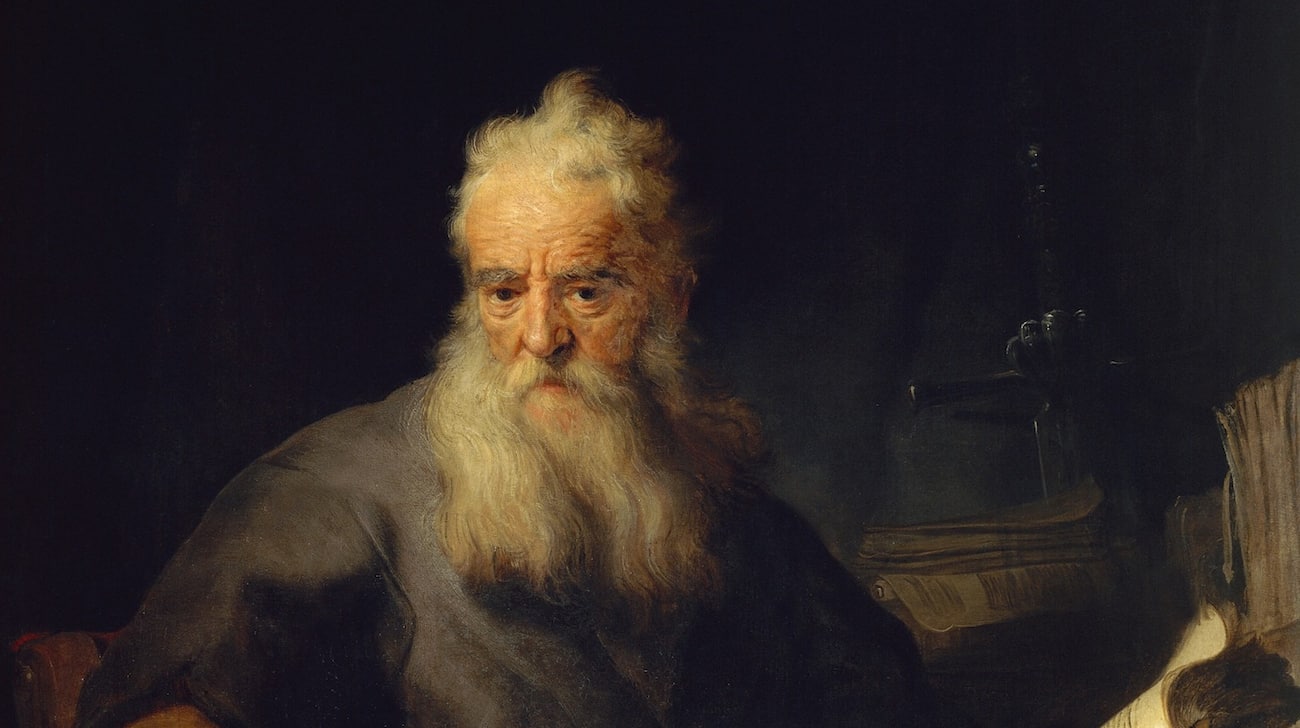Whenever I mull over my defeats, as well as when I hear some troubling confessions and, in spiritual direction, I see the dangers of living in the past! The past is done and gone…It is no more. God is calling us to live in the present; His present, which is always an unmerited gift, a present indeed. There is no past, no future in our God, but just an eternal present (His name is I am who am), an eternal gift of His love and mercy.
Remember not the events of the past, the things of long ago consider not. (Isaiah 43:18)
Heedful of that invitation, St. Paul, nearing the end of his life, in prison, in chains, seemingly in a helpless situation, chooses to live in the present of his Lord and Savior Jesus Christ. (Philippians 3:8-14)
In that grace-filled present, he finds enough courage to drop his heavy burden of his ungodly past of persecuting Christians, of hollow adherence to the Pharisaic practices of his youth to place himself into the hands of his Lord. Thus, he feels transformed by the infinite gratuitousness of his Lord’s forgiveness.
And, in that present, he is likewise so confident that he considers all his past good deeds of prayers, fasting, charitable self-giving and preaching the Gospel amid countless trials, as “rubbish.”
Why this unusual outlook? It is due to the fact that, at this present moment, he feels thoroughly possessed by the mercy and the love of Jesus. He must have come to believe that nothing can compare with this sensation of living in the present of his God.
Perhaps some of our past is still consuming us, eating us from within because we keep focusing on our mistakes, or the abuse, the insult, the hurts inflicted on us by someone whom we trusted. Worse yet, we might feel the burning sensation of betrayal, of having been violated, torn asunder, manipulated, embarrassed. True, this type of past has the power to bruise our memory, spoil our life, fester inside our heart and poison our joy. Yet, there is also an even scarier type of past: it is the heavy baggage of fears and anxieties handed down to us by our parents, grandparents and even by generations long gone.
I am referring to their past of misdeeds and hurts that they failed to turn over to Jesus in the course of their lifetime; and which we have inherited from them. It is a past buried deep inside the remotest recesses of the heart; and which could be completely erased from our consciousness. Even so, it could be at least partially responsible for our restlessness, for our feeling of inadequacy, for shameful drives, for obsessions, even for forms of paralysis.
Naturally there are also lots of good memories, of dedication, of service, of loving things we did for others and others did for us. Yet, even these belong to the past; thankfully, they have been recorded by our omnipresent, ever-attentive, God.
Now we must live, act, serve, love, in His present. We must find new purpose, new meaning and new joy in His present. We can attempt different ways to erase our past; and the world, in its foolishness, does certainly suggest many others! However, our God’s solution is the only one that really works. It must begin in a humble way from the heart of each believer.
Remember not the events of the past, the things of long ago consider not. See, I am doing something new! As if to say: I alone can change the “desert” of your mind into a river, the “wasteland” of your heart into an oasis teeming with life.
In the Gospel of John (8:1-11), we are offered a fine example of what the Lord can do with our past. First of all: the law is quite clear; seemingly without any way out; heartless and cold—and quite specific. Women such as this one must be stoned to death. But those who had picked up rocks pretending to be ready to crush the poor woman to death, are actually close to making the fatal mistake of burying their past and, thus, absolving themselves of their own wrongdoing, without a radical change of heart. They are focusing on the secure trap they prepared for Jesus: If he sets her free, he is guilty of blasphemy for disregarding God’s law. If he gives them permission to stone her, he would prove to be a rebel, in serious trouble with the Romans, who had taken that right away from the Jews.
Naturally, the woman is the most powerless to erase her past and avoid its dreadful consequences, unless God changes the “desert” of her past into a river; unless He turns her “wasteland” into the oasis assured by His present. In His present, she hears these words: “Let the one among you who is without sin be the first to throw a stone at her.”
God is the only one who knows that her past is enslaving her as the past of troubled kids, the past of St. Paul, the past of so many of us, the past of those who clench rocks in their hands to trap Jesus, is holding them captive.
It could be our situation, too, with our past imprisoning us. Thankfully, those people are forced by Jesus to face the past that had hardened their hearts, so they just drop their stones and leave. It happens because they do not choose to live in the present of Jesus.
But she does, not by her choice, but by welcoming his compassion: “Neither do I condemn you. Go, and from now on do not sin any more.”
Our past can turn our life into a wasteland; it can make us self-destruct. Its deadly effects can be measured by the degree of bitterness, restlessness, resentment and fear that we might still carry inside. It cannot be otherwise, because, not knowing what goes on in the minds and hearts of others, whenever we are ready to condemn, we are actually condemning our past and undermining ourselves, too.
But, today, the Lord wishes also to do something new for us! Hence, it would be wise of us to surrender our known past to His infinite love and mercy. Furthermore, we should surrender our unknown past, as well,to His transforming power.
Why hurt ourselves any further? We drop the rocks we hold in our hands realizing that we were going to stone ourselves as we have done many times before. Now, we can, at last, live freely and joyfully in the present of our merciful God.









Your article is a great blessing! Thank you for your wisdom.